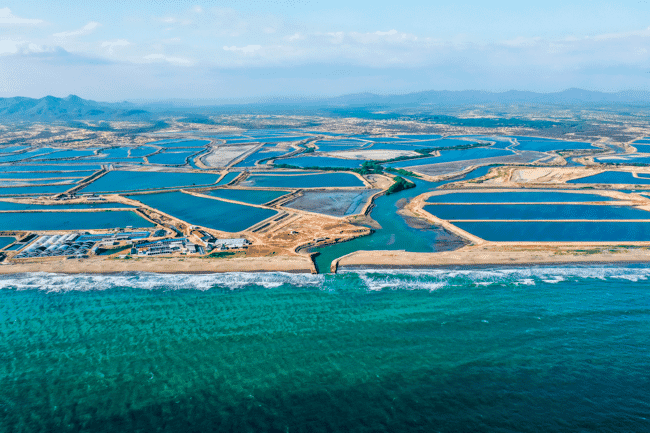
Ecuador's shrimp industry accounts for approximately 20 percent of the nation’s exports and 5 percent of its GDP © Industrial Pesquera Santa Priscila SA
Shrimp farms in Ecuador will have better productivity with a new investment by IFC helping replace diesel with electricity for farm operations while addressing the environmental risks in shrimp production. The aim is to help improve the sector’s sustainability, supporting the nation’s climate targets.
The IFC is a member of the World Bank Group and is the largest global development institution focused on the private sector in emerging markets. The agency works in more than 100 countries and uses its capital and expertise to create markets and opportunities in developing countries.
IFC’s loan of up to $45 million to Industrial Pesquera Santa Priscila SA, the leading shrimp exporter in Ecuador, will help the company expand its number of farms and improve their automation and productivity.
The shrimp sector is of vital importance to Ecuador’s economy, accounting for approximately 20 percent of the nation’s exports and 5 percent of gross domestic product (GDP). However, the sector faces a range of challenges related to low productivity and reliance on fossil fuels that deter the industry’s overall sustainability.
Raúl Estrada, corporate advisor of Santa Priscila, said, “IFC’s long-term financing, not readily available for agribusinesses—especially for investments in electrification of farms—will help grow our operations. With IFC’s support, we expect to increase productivity levels by more than 20 percent in terms of pounds of shrimp per hectare. IFC’s expertise will also help raise our operating standards in terms of environmental and social practices (E&S), corporate governance and insurance, boosting our sustainability to meet the dynamic market demand.”
IFC’s funds will only be invested in farms that are adapted to replicate Aquaculture Stewardship Council (ASC) or Best Aquaculture Practices (BAP) certification standards, promoting good practices with sustainability benefits. Around 42 percent of the financing will contribute to climate mitigation, avoiding emissions of approximately 2,000 tons of CO₂ equivalent annually.
Alfonso García Mora, VP of Europe, Latin America and the Caribbean for IFC, said, “addressing climate change and supporting long-term growth is a key priority for IFC in Latin America and the Caribbean. IFC’s investment will support one of the leading shrimp producers in Ecuador to expand, adopt more sustainable farming practices and upgrade its farm infrastructure. This will promote competition and productivity growth in this important export-oriented sector, catalysing the greening of the shrimp sector to tackle future shocks.”




